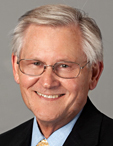
The Anchorage Assembly voted 6-3 to shut down public testimony on a controversial proposal that would limit city unions Monday night.
Testimony was some of the most heated and emotional yet in the month long debate. Workers outlined details of their jobs in an attempt to convey their value to the Assembly, and a labor law expert pointed out problems with the ordinance, claiming it would bring lawsuits to the Municipality. Some who testified warned Assembly members that voters were watching them and would retaliate come Election Day. Toward the end the meeting, Assembly member Paul Honeman motioned to allow public testimony to continue. When Chairman Ernie Hall tallied the votes the audience protested.
“Hall: We’ve got, um, 6 no, 3 yes and 1 excused so the motion fails. Audience members: Thank you for respecting us … (banging of gavel)… you don’t represent no one here.”
The proposed ordinance was announced on Feb. 8 by Mayor Dan Sullivan. It would limit union longevity and performance pay, benefits, and eliminate binding arbitration along with strikes. It would also allow some municipal jobs to be contracted out. Sullivan says the changes are needed to keep costs down, and the ordinance must be rushed because of upcoming union negotiations. Friday, union leaders representing 2,200 or so municipal employees offered a one-year wage freeze in exchange for tabling of the ordinance. After continuing public testimony was voted down, Sergeant Gerard Asselin, who represents the Anchorage Police Department Employee Association, offered this comment. He said the assembly was breaking its own code by limiting testimony.
“Under Municipal Code it provides that the Chair shall instruct people, public speakers, to be brief but it does not contain any provision allowing the chair to limit certain people who wish to speak to zero time,” Asselin said.
Chairman Hall calls the Assembly action legal, despite a letter from the ACLU of Alaska that warned it would be “improper” to shut down testimony before everyone had a chance to speak. After listening to four 5-hour evenings of public testimony from 285 people, Hall was ready to look at what the Municipal Charter says in a different way than the ACLU.
“No, I don’t think I’m in conflict with municipal code. Municipal code says reasonable time. At the end of the meeting another 3 or 4 hundred people stood up and said they hadn’t had the opportunity to testify yet. It appeared that it turned into an opportunity to filibuster. And we just got to the point where after 20 hours … what the charter says is reasonable time and we felt that we had given reasonable time and chose to close,” Hall said.
Hall says he has consulted municipal attorneys on the matter and is confident they made the right decision. The Assembly is postponing final action on he matter until March 26, and Halls says people still have time to contact assembly members and submit written testimony to the clerk.
Listen to the full story
Daysha Eaton is a contributor with the Alaska Public Radio Network.
Daysha Eaton holds a B.A. from Evergreen State College, and a M.A. from the University of Southern California. Daysha got her start in radio at Seattle public radio stations, KPLU and KUOW. Before coming to KBBI, she was the News Director at KYUK in Bethel. She has also worked as the Southcentral Reporter for KSKA in Anchorage.
Daysha's work has appeared on NPR's "Morning Edition" and "All Things Considered", PRI's "The World" and "National Native News". She's happy to take assignments, and to get news tips, which are best sent via email.
Daysha became a journalist because she believes in the power of storytelling. Stories connect us and they help us make sense of our world. They shed light on injustice and they comfort us in troubled times. She got into public broadcasting because it seems to fulfill the intention of the 4th Estate and to most effectively apply the freedom of the press granted to us through the Constitution. She feels that public radio has a special way of moving people emotionally through sound, taking them to remote places, introducing them to people they would not otherwise meet and compelling them to think about issues they might ordinarily overlook.




